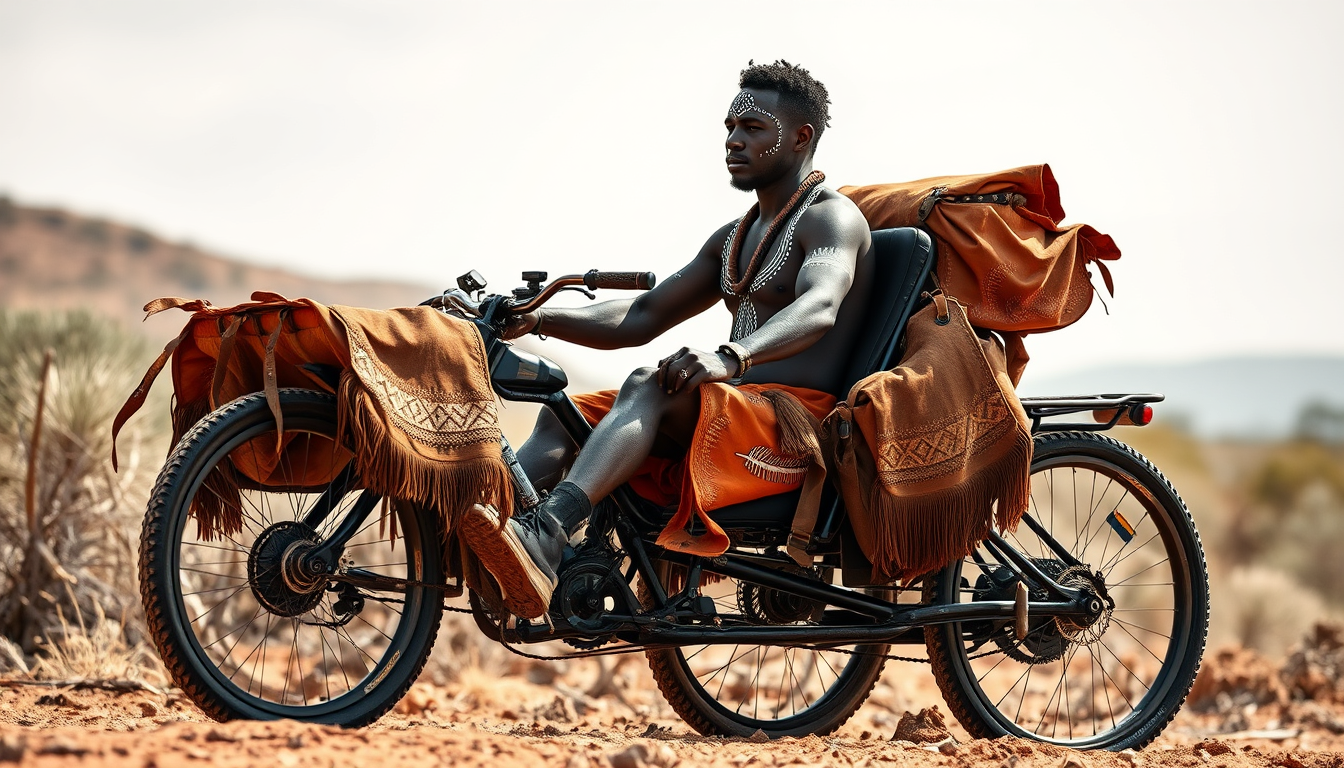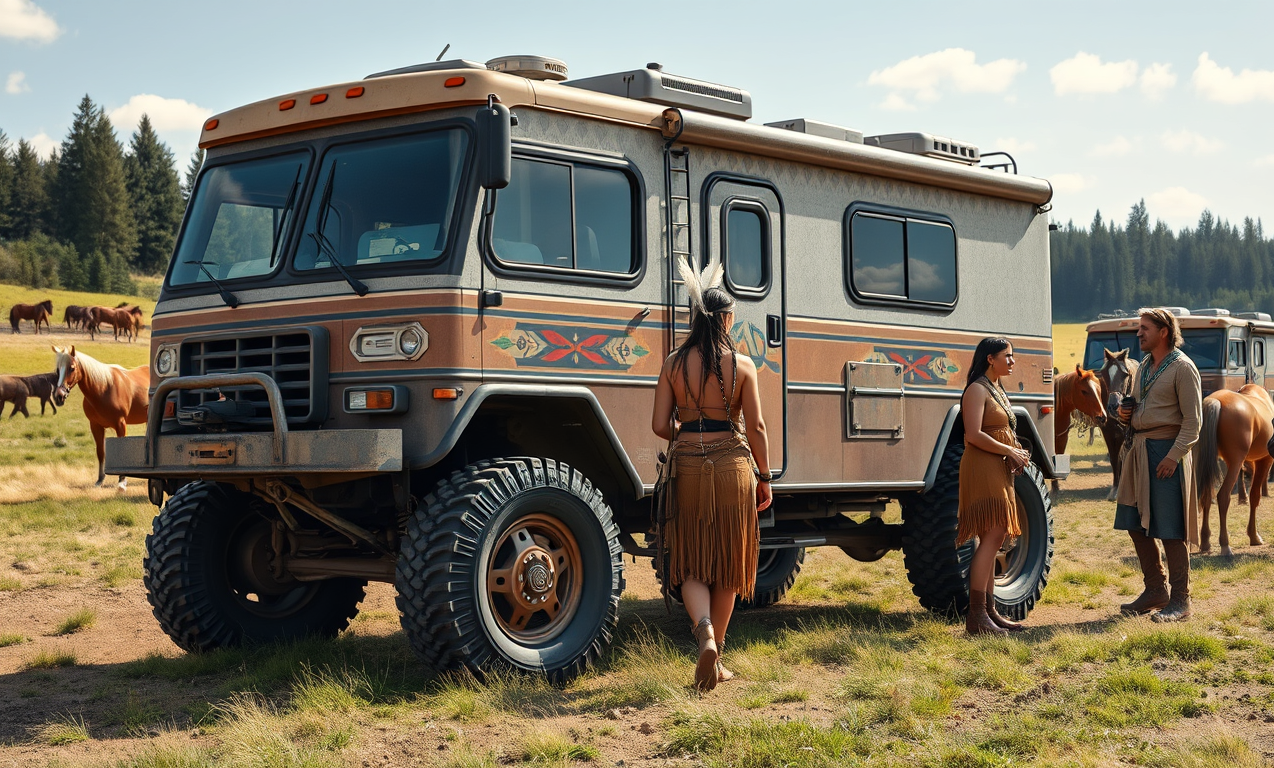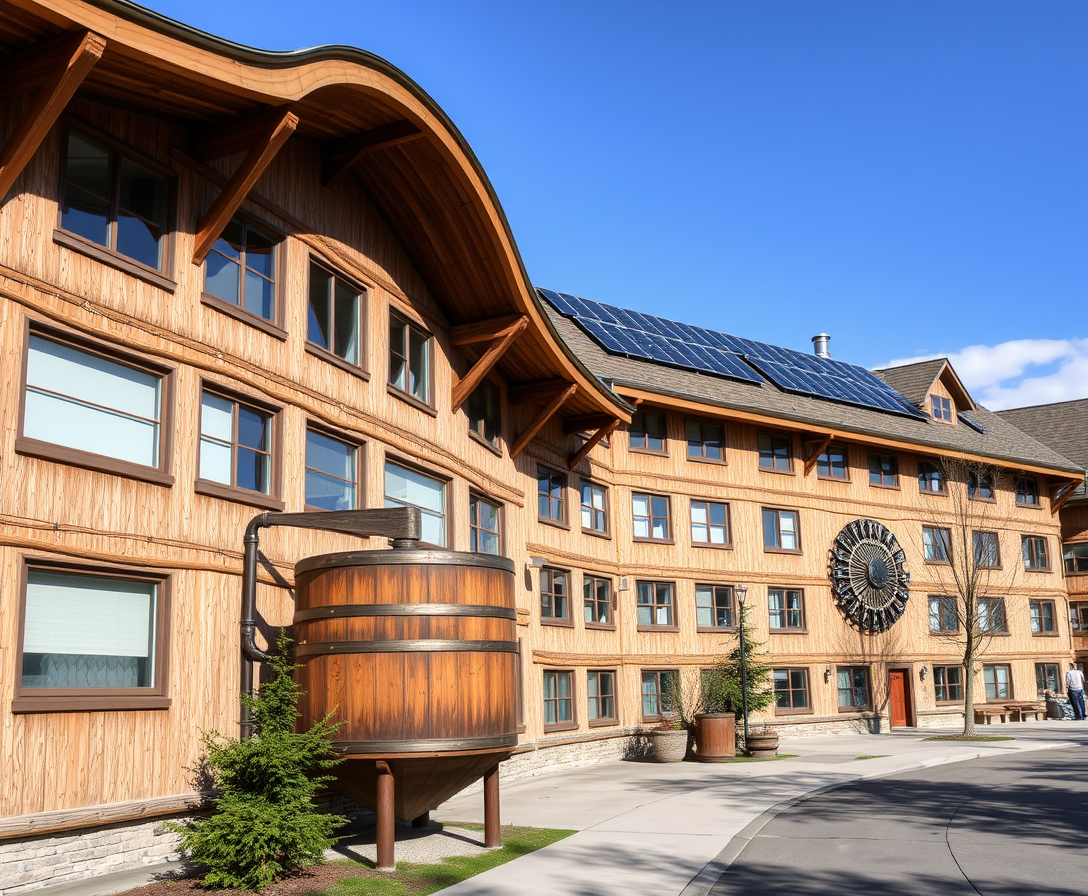cross-posted from: https://hexbear.net/post/3167507
I've posted about this world before here and here.
It's an alternate history. Colonialism never happened in the first place. The world remained tribal, and traditional cultures remain strong. But 21st century tech develops. There is a lack of capitalism and exploitation.
I downloaded these pics from the multiversal interwebs:
Show
Traditionally nomadic cultures – such as this Australian bushman – remain nomadic in the 21st century. But their lives are made easier by technology. Under capitalism, developing technology keeps some people poor but increases the wealth of a few. In the solarpunk, non-colonial world, people use tools like this off-road tricycle to make their traditional lifestyles easier.
Show
North American cultures follow the still-great buffalo herds. They use offroad vehicles that run on gasified biomass they harvest as they go. These vehicles are no faster than a horse. That guy on the right? I guess he's a tourist from a traditional European country; he's visiting his friends. They'll speak the Esperanto-type language to each other.
Show
This picture was taken in a subway station in Cahokia.
Show
This is a typical sight in the northeast megaregion. This is what the longhouses of the Haudenosaunee people look like in the 21st century.
Show
The fishing cultures of North Europe live within the ecological limits. Some fish are still wild-caught, providing 5-10% of the diet. Others are farmed in open ocean farms. Members of a large (town-sized or city-sized) tribal confederacy have the customary right to harvest from these waters, and manage the wild stock and the farms as a commons.
Show
My post linked above discusses guilds. One guild that exists, alongside doctors, tailors, and microchip-fabricators, is the Soapwitch guild. They have knowledge of local wildflowers, oils, and that sort of thing. Their job is to provide soap, perfume, toothpaste etc. for free to members of their tribe (instead of Unilever and Colgate doing it for profit). It's their tribe's reciprocal obligation to give them food, shelter, protection, etc.